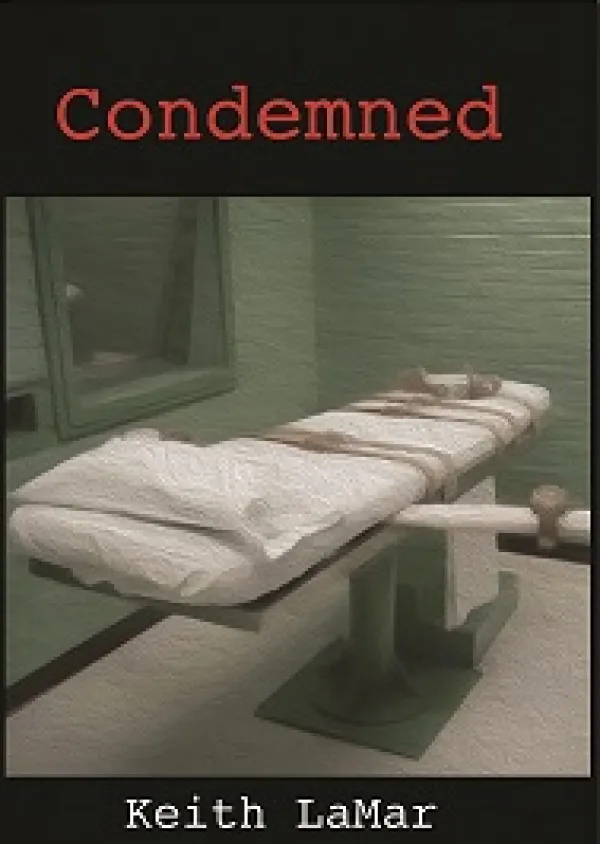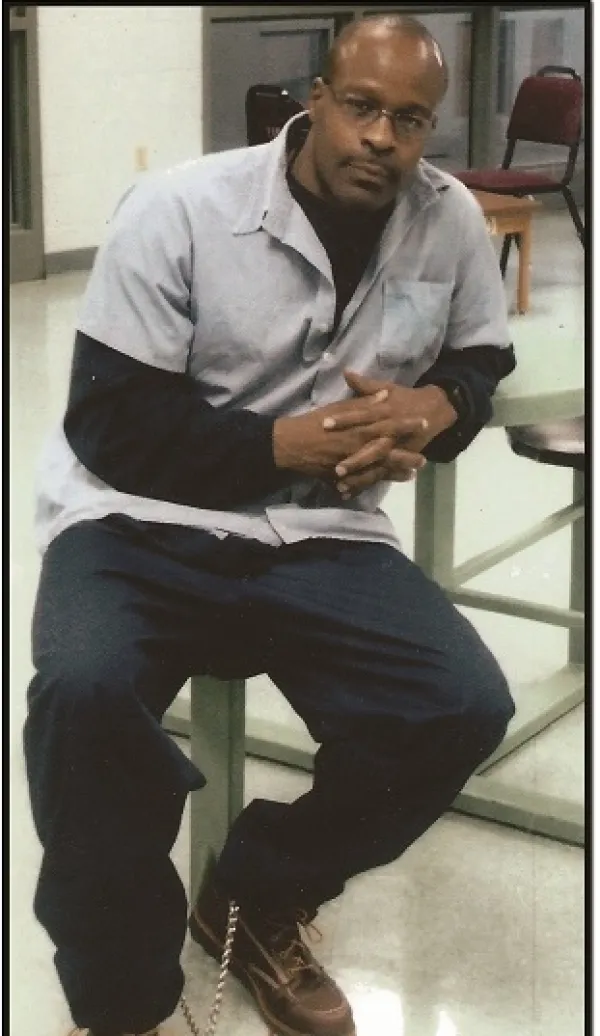Four prisoners unjustly sentenced to death for the 1993 Lucasville, Ohio, prison uprising began a hunger strike on Monday, Jan. 3, to demand that they be placed on Death Row rather than be held in solitary confinement – and to initiate a campaign that will hopefully lead to executive clemency. Here, the first of the prisoners to begin the strike speaks out.
“My journey through this life has been and continues to be a mystery. I remain eager to understand it. As a human being, my fundamental goal is simply to be free to walk in the sunshine without man’s ugly bars of oppression hindering my movement. I’m talking about freedom in the purest sense: To love, to live, to laugh, to struggle, to cry and – even – to die a free man. To be free… These long years in solitary confinement have not turned me around. I’m still moving straight ahead. I still believe in the human experience and in the notion that love is the only freedom.”
–Bomani Shakur, January 2014
Before I speak my piece, let me make one thing perfectly clear: I don’t want to die. I want to live and breathe and strive to do something righteous with my life. Truly. For the past 16 years, however, I’ve been in solitary confinement, confined to a cell 23 hours a day for something I didn’t do, and, speaking honestly, I have gone as far as I am willing to go.
Am I giving up? No. This is a protest, the only non-violent way I can think of to express the deep disdain I have for the unjust situation that I am in. Make no mistake: My physical and mental strength is intact. However, to continue on in this way would be to lend legitimacy to a process that is both fraudulent and vindictive; this I am no longer willing to do.
I realize that for some of you the thought that an innocent man could be sent to prison and ultimately executed is inconceivable. But it happens. In a system that’s based more on competition than on the equitable treatment of others, the football field is not the only place where participants are encouraged to win at any cost.
Hence, in order to be victorious, some prosecutors hide evidence, lie in open court and even pay for the perjured testimony of their witnesses. And this is exactly what happened in my case – and in the majority of cases stemming from the 1993 prison uprising at the Southern Ohio Correctional Facility in Lucasville, Ohio; and there are a few people among you who have reviewed the file and know this to be the truth.
To continue on in this way would be to lend legitimacy to a process that is both fraudulent and vindictive; this I am no longer willing to do.
But let us, for the moment, put aside the question of my guilt or innocence, because that, believe it or not, is not what this is about. On that score, we have written several books, produced a play and are putting the final touches on a full-scale documentary to illustrate the travesty of justice that has taken place here; and these things are available to you if you are interested. For now, I want to talk about dying.
In all that is presently unclear, one thing is certain: I have been sentenced to death, which, as you know, is the severest penalty known to man. Typically, when one has been given the death penalty, one is placed alongside other similarly-sentenced prisoners and they, together, are housed in an area that has been designated as Death Row. As living situations go, this is a very bleak and miserable place: Men are sent here to die, to be killed by the state. No one in their right mind would ask to be sent here; and yet, this is precisely what I am asking, which should give you an indication of just how insufferable the situation I am living under is. And I am not alone.
When the uprising was over, and all was said and done, five of us were singled out as leaders and sentenced to death. Jason Robb, James Were (or Namir, as he prefers to be called), Siddique Abdullah Hasan, George Skatzes and myself. With the exception of George Skatzes, who for the past 10 years has been in a less pressurized though by no means acceptable situation, we have undergone penalty on top of penalty, been kept from fully participating in our appeals, from touching our friends and families, denied adequate medical treatment and so many other things that are too numerous to name.
In a word, we have been tortured. And yes, I am aware that the word “tortured” is a strong word to use, but I know of no other word that adequately describes what we have been through. We have been put through hell.
A federal judge recommended that my case be dismissed, which effectively moved me one step closer to being executed. It’s hard to explain how this made me feel; but upon hearing the news I immediately thought that a mistake had been made and that my attorneys had somehow misunderstood the judge’s ruling. As it turns out, I was the one who misunderstood. Indeed, I have been “misunderstanding” things all along.
When I was first named as a suspect in riot-related crimes, I was certain that my name would eventually be cleared. Instead, I received a nine-count murder indictment with death-penalty specifications. I was shocked.
And then they offered me a deal: “Cop out to murder and we’ll forget the whole thing,” they told me. “But I’m innocent,” I said, thinking to myself that the truth of this would somehow set me free. And so, with the trust and faith of a fool, I went to trial, thinking and believing that I would receive a fair one (I didn’t) and that I would ultimately be exonerated (I wasn’t).
And then, when I was sentenced to death, it was my understanding that I would be placed on Death Row and allowed to pursue my appeals alongside other similarly-sentenced prisoners; but, again, I misunderstood … “Just wait until you get to federal court,” I was told, “and you’ll definitely get some relief there.” So I waited … I waited for 16 years!
Is it too late? I don’t know. As I said, the books have been written, the play has been performed and, pretty soon, the documentary will be completed. But what good are these things if they never enter into the stream of public opinion and force the governor – who answers to the public – to issue a general amnesty?
Admittedly, convincing the governor to bend in our favor will be a difficult undertaking, one that will require huge amounts of energy and effort on our behalf. But it can be done; at the very least, it can be attempted.
In the meantime, we who have been sentenced to death must be granted the exact same privileges as other death-sentenced prisoners. If we must die, we should be allowed to do so with dignity, which is all we’re asking: the opportunity to pursue our appeals unimpeded, to be able to touch our friends and family, and to no longer be treated as playthings but as human beings who are facing the ultimate penalty.
Meet Bomani Shakur
Saturday, May 10, 2014 at 7:30pm
at the
Free Press Second Saturday Salon
1021 East Broad Street, Columbus
There will be a presentation and reading from Bomani’s new book “Condemned: The Whole Story” and Bomani will call from death row to speak with supporters.
His contact address is:
Keith LaMar, #317-117 OSP
Postbox 1436,
Youngstown, OH 44501
Or send him a Jpay.com mail!




